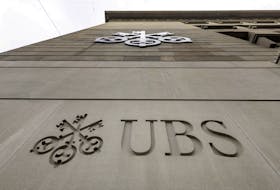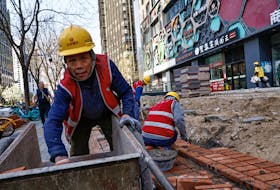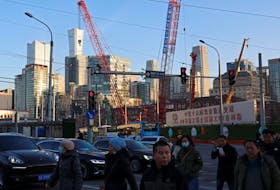By Leika Kihara
TOKYO (Reuters) - The Bank of Japan cut its economic view for all of the country's nine regions for the second straight quarter, the first such downgrade since Lehman Brothers collapsed in 2008, backing signs the economy could fall deeper into recession.
The move underscores just how much damage the coronavirus pandemic has done to the world's third largest economy.
In its quarterly report released on Thursday, the BOJ offered a bleaker view for most regions than three months ago due to recent data pointing to slumping factory output, consumption and capital expenditure.
"Exports have been shrinking further as COVID-19 has led to a plunge in global automobile sales," said a transport machinery maker in southern Japan in the report.
The July report said all of Japan's nine regional areas saw their economies "worsening" or in a "severe state" due to the outbreak which forced governments around the world to impose restrictions on businesses and movement earlier this year.
The warning comes ahead of the central bank's interest rate decision next week, when it is expected to hold off on loosening monetary policy further to gauge the impact of stimulus measures deployed in March and April.
In a speech delivered to a meeting of the BOJ's regional branch managers in Tokyo on Thursday, BOJ Governor Haruhiko Kuroda said consumer prices were likely to keep falling for the time being as Japan's economy worsens, though he stuck to the central bank's optimistic outlook.
"Japan's economy is expected to improve as the impact of the pandemic subsides, supported by pent-up demand ... an accommodative monetary environment and the government's stimulus package," Kuroda said.
Japan slipped into recession in the first quarter and analysts expect the pandemic to drive a sharp economic contraction of over 20% in the April-June period.
(Reporting by Leika Kihara; Editing by Chang-Ran Kim and Ana Nicolaci da Costa)








